The last two years have been challenging for most Coloradans. But undoubtedly, they have been significantly harder (and in some cases devastating) for those who were already living furthest from opportunity.
Across the state, low-income residents in urban and rural areas — especially people of color and women — have borne the brunt of a strained economy and community. The impacts of COVID-19 have brought to light pre-existing inequities in our economy and in our social safety net. Low- and moderate-income families and individuals have faced greater wage cuts, job loss, housing insecurity, and often additional health risks as front-line workers in our service economy.

At the same time, the ugly truths of the historical and systemic inequities and racial injustice that shape our country have been brought to the surface. Led by the powerful community-driven and grassroots work of Black Lives Matter and many others, there is a broader coalition and a renewed sense of urgency to address justice deferred.
The last two years have been a lesson in crisis community development. Our communities are not the same. What worked in the past may no longer serve us today.
In response, on-the-ground community leaders and advocates have discovered new and creative ways to serve Colorado communities. Among those combatting social injustice, climate change impacts, and growing economic inequality, there is a drive and determination to address root causes and find solutions that are systemic and long-lasting.
In this context of change and upheaval, Gates Family Foundation set out to understand the impact of our past five years as a strategic funder working in Community Development. We knew we had to hear from you — our partners, the people doing and supporting the work to build community — before we could set a course for our next five years.
So we asked 74 partners to answer eight questions via a survey; 28 respondents gave us valuable feedback. Of those, 79% led nonprofits, 14% were peer funders and 1% represented policy.
Thank you for taking the time to share your perspectives and thoughts with us, either through the survey or through other conversations and input. Your feedback is informing how we formulate our new strategies, investments, and our own behaviors and understanding of how to best serve our community.
Broadly speaking, this is what we heard from you.
Our communities are struggling with real economic and growth challenges, and we can and should do better. We heard you say the time is right for “re-establishing a social fabric that builds toward shared values and mutual benefit, positioning Colorado as a pioneer in food systems, land use, and community development and a place where others seek inspiration,” as one local nonprofit leader put it.
 Your feedback overwhelmingly pointed to the need for fixing issues that are fundamental to thriving communities: affordable housing, economic opportunity and closing the wealth gap; sustainable neighborhoods and climate change — all of which must be centered in equity. We heard calls for Gates dollars, convening power, and connections to be used in ways that lift urban and rural communities as the active drivers of their own success. As one community partner highlighted, we should take care to “position rural Colorado as a leader in shaping change, not as a victim trying to catch up to it.”
Your feedback overwhelmingly pointed to the need for fixing issues that are fundamental to thriving communities: affordable housing, economic opportunity and closing the wealth gap; sustainable neighborhoods and climate change — all of which must be centered in equity. We heard calls for Gates dollars, convening power, and connections to be used in ways that lift urban and rural communities as the active drivers of their own success. As one community partner highlighted, we should take care to “position rural Colorado as a leader in shaping change, not as a victim trying to catch up to it.”
Affordable housing is on the minds of many, across geographies and areas of work. Mentioned more than 40 times in survey responses, the housing crisis and its implications for individuals and families is daunting.
A full 57 percent of respondents named housing as one of the top challenges facing Colorado communities, the most consistently cited issue. Colorado’s housing crisis continues to worsen from the Denver metro area to rural towns across the state, leaving low- and moderate-income workers priced out and renters paying unsustainable rates. Respondents clearly see a need to address the housing crisis and staff sees opportunities to engage selectively in the field as a convener, grant funder, and impact investor.
When asked how private philanthropy, and Gates Family Foundation, in particular, can do better, you confirmed the need for simple grant applications and reporting processes, and that multi-year and operating support is best. You noted that in the realm of community development, there are often cross-sectional solutions, and that more flexible funding can provide grantees with the freedom of time and adaptation as community dynamics and issues change over time.
You challenged us to secure “the interest/buy-in from the community to lead and inform the community development work we are intending to do,” in the words of one community leader. And you challenged us to fund organizations that do community organizing and grassroots work. Leadership development for individuals who are rooted in community also rose to the top as a strategy for grant dollars.
We asked for your thoughtful and candid feedback and you obliged. Thank you.
You are probably asking: Now what?
Your feedback has been an important part of the input that is informing our new strategic plan, which we will release in early 2022. We look forward to meeting with current and potential partners via small groups, individual meetings, and webinars to unpack what it all means.
Our staff and board built the new plan with our best thinking and experience. But most importantly, we worked to keep the community’s needs at the center of every decision, thanks to your input.
We are deepening our commitment to equity at every level of our work. We will work to better use every tool in our toolbox to lift community, create impact, and be the best partners we can be. We will broaden our reach and deepen our relationships. Given the overwhelming concerns about affordable housing and economic mobility, the Foundation expects to focus more time and resources in these areas.
More to come soon. For now, we want to pause and express gratitude for your time, your partnership and your honest feedback. Thank you!



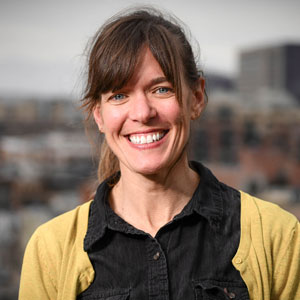
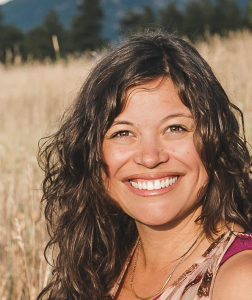


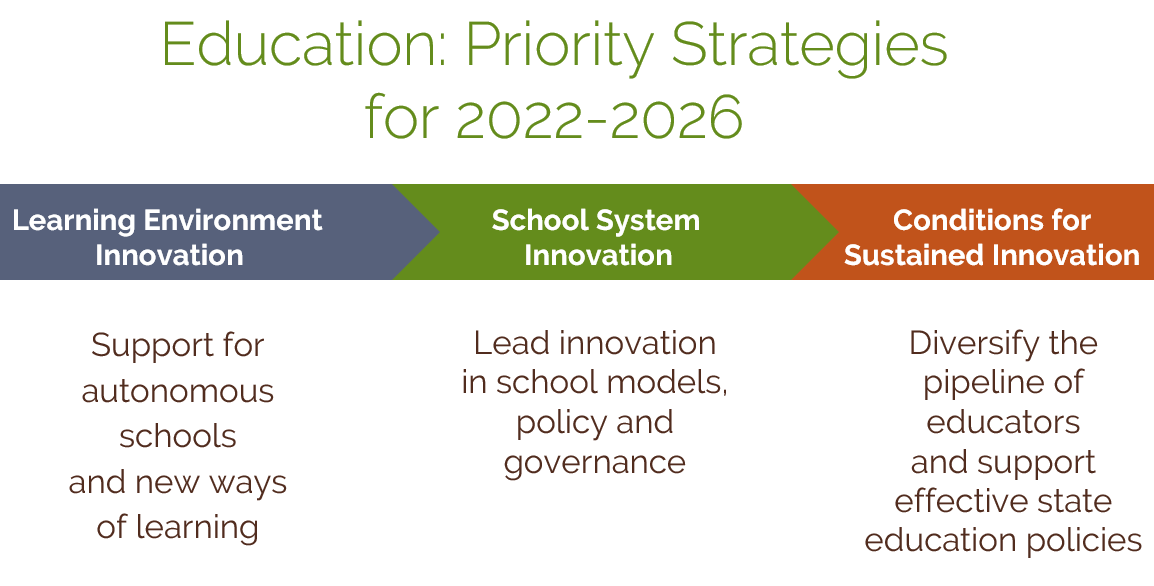

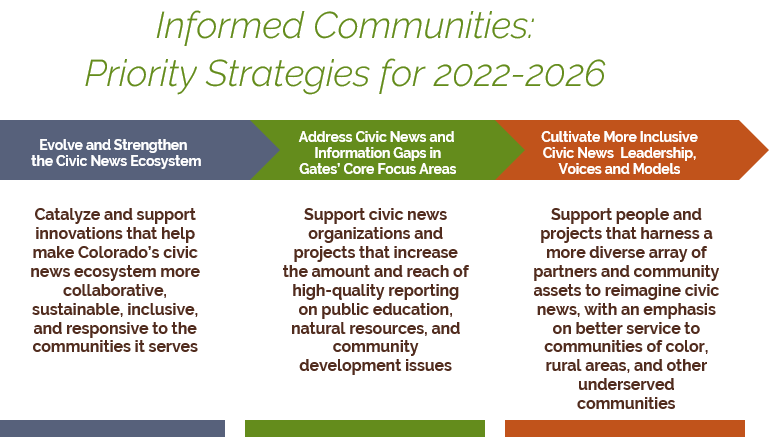
 Finally, also in 2023 a total of $410,956 previously committed by Gates to the
Finally, also in 2023 a total of $410,956 previously committed by Gates to the 
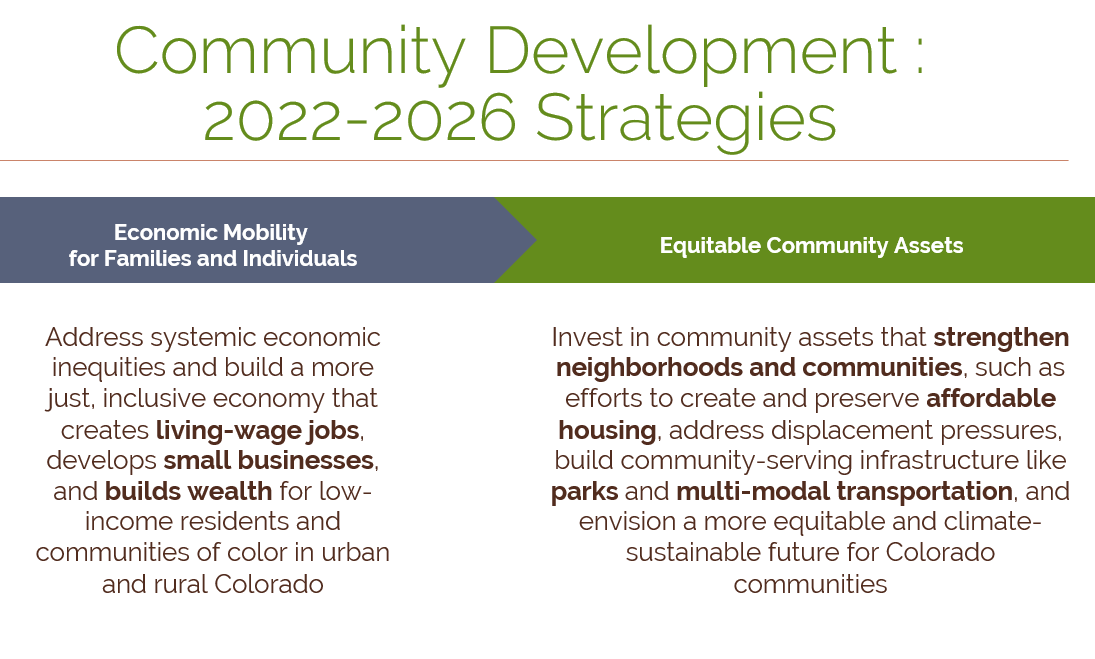

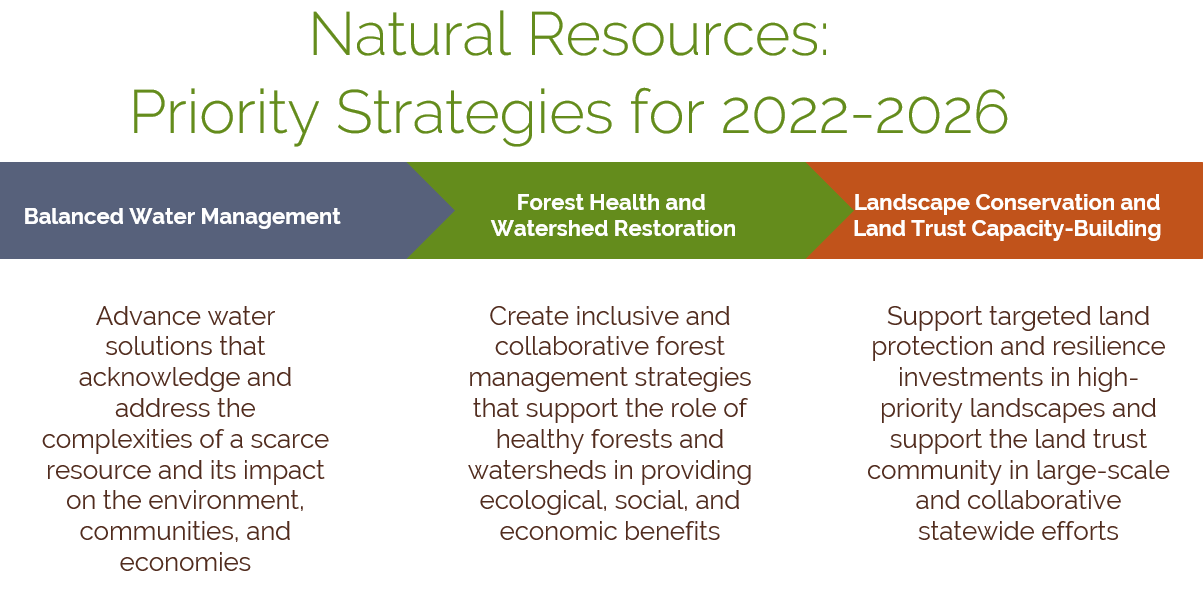
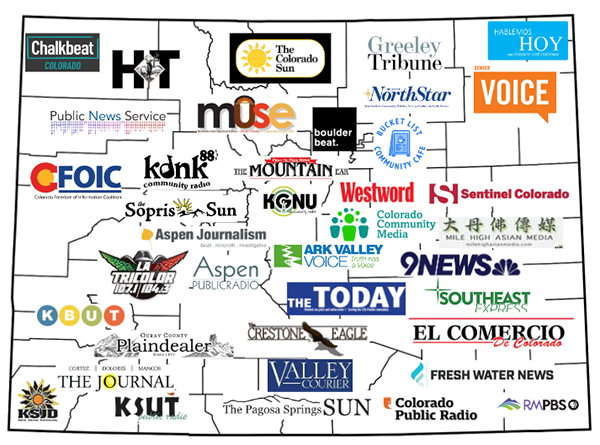 A total of $1,110,956 committed to the
A total of $1,110,956 committed to the 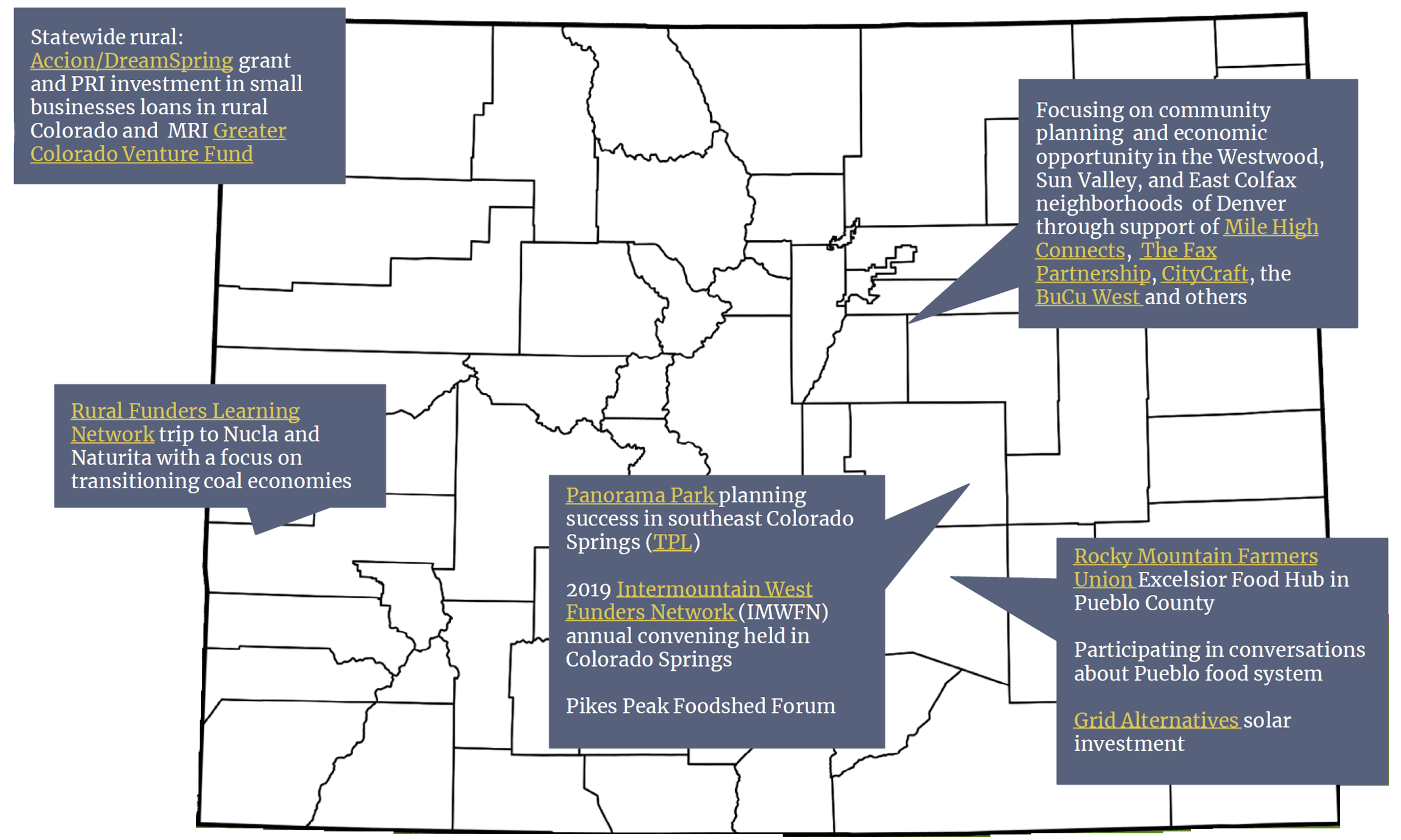 In 2019, the Community Development program committed $932,500 in strategic grants to 13 organizations and $465,000 in responsive capital grants to 12 organizations. New impact investments supporting vibrant communities in 2019 included a $500,000 MRI to
In 2019, the Community Development program committed $932,500 in strategic grants to 13 organizations and $465,000 in responsive capital grants to 12 organizations. New impact investments supporting vibrant communities in 2019 included a $500,000 MRI to 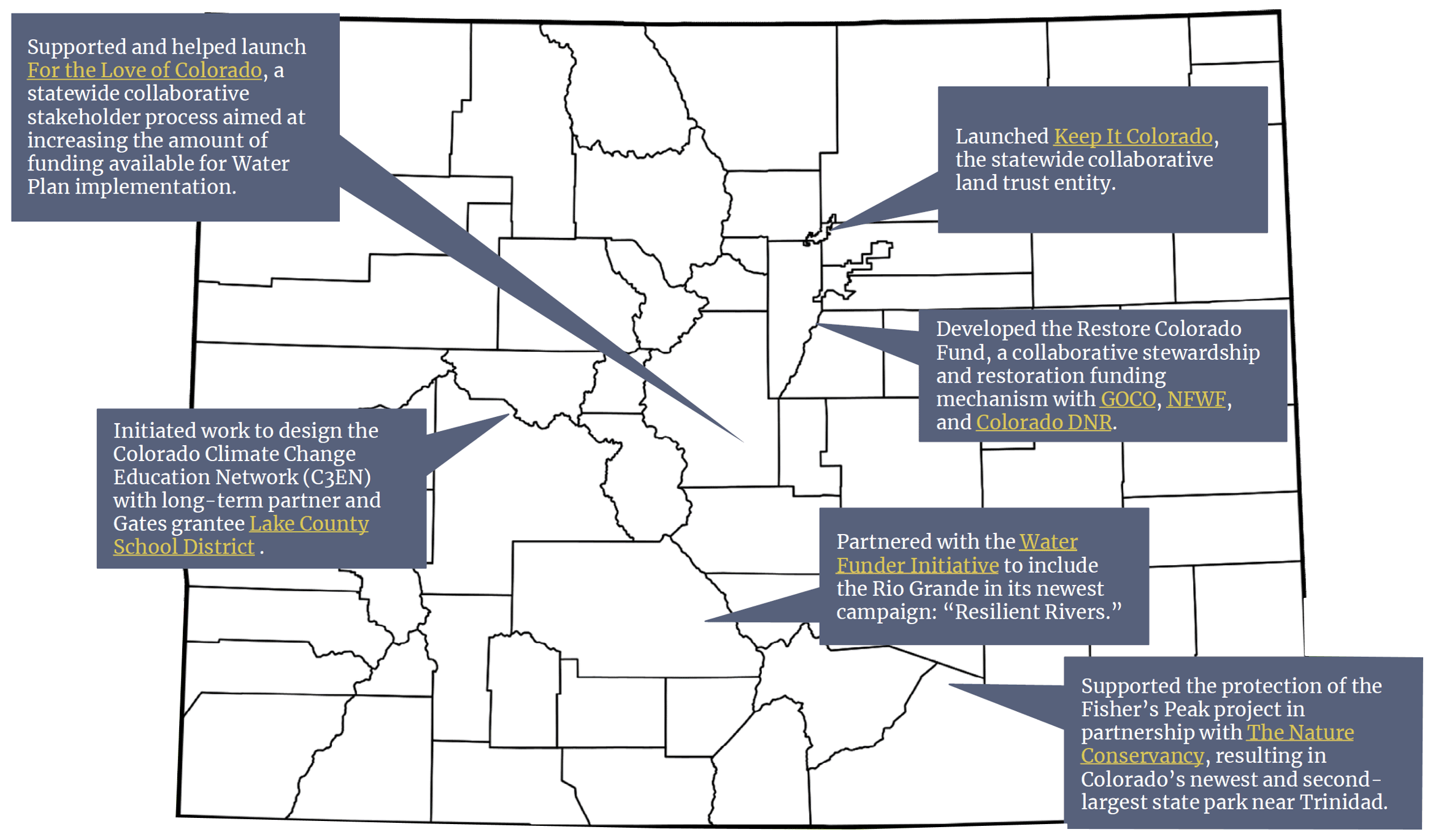 Our Focus Landscapes initiative, a key element of our Natural Resources program, underwent a comprehensive review, revision, and re-launch in 2019. This initiative was launched in 2011 to help Colorado achieve landscape-scale conservation through the protection of private lands in specific geographies. A great deal of progress was made in North Park, southeast Colorado, and the San Luis Valley, resulting in more than 200,000 acres of farm and ranch lands conserved, along with their associated ecological values. The strategic review process was done in close partnership with the land trust organizations representing those geographies, providing lessons-learned and an exploration of emerging opportunities. The revised Focus Landscapes initiative will first focus on two geographies:
Our Focus Landscapes initiative, a key element of our Natural Resources program, underwent a comprehensive review, revision, and re-launch in 2019. This initiative was launched in 2011 to help Colorado achieve landscape-scale conservation through the protection of private lands in specific geographies. A great deal of progress was made in North Park, southeast Colorado, and the San Luis Valley, resulting in more than 200,000 acres of farm and ranch lands conserved, along with their associated ecological values. The strategic review process was done in close partnership with the land trust organizations representing those geographies, providing lessons-learned and an exploration of emerging opportunities. The revised Focus Landscapes initiative will first focus on two geographies: 